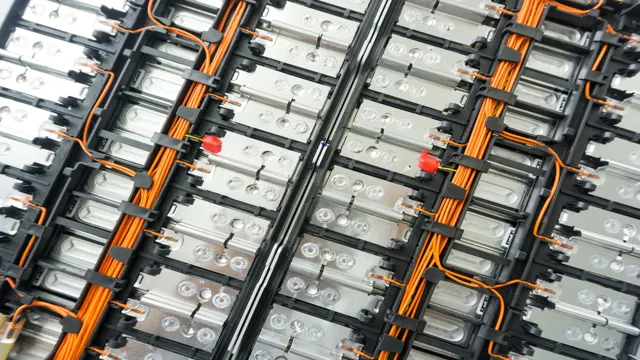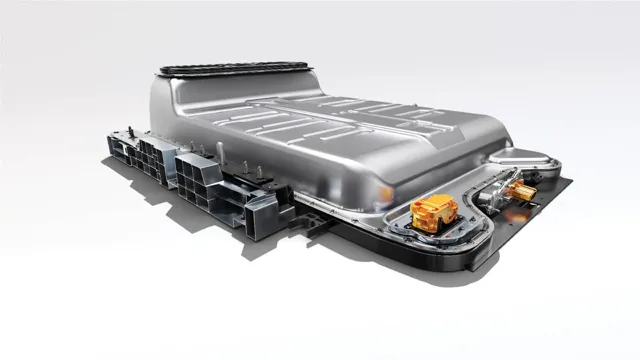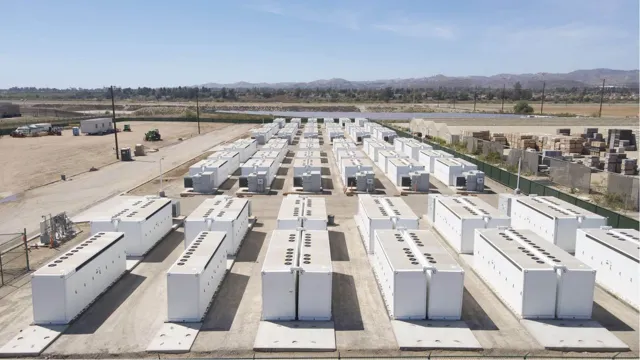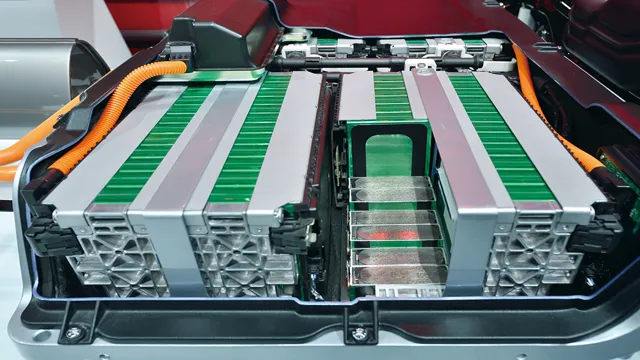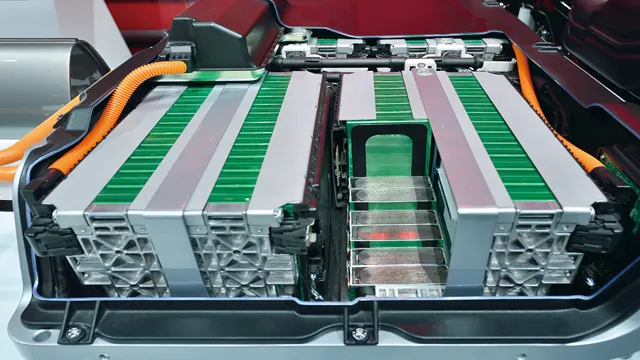Revolutionizing the Future of Transportation: Exploring the Advancements in Electric Car Battery Technology
Over the past few years, the automotive industry has undergone a significant shift towards electric vehicles (EVs), driven primarily by environmental concerns and advances in technology. While EVs offer a far more sustainable mode of transportation, one of the biggest challenges regarding their widespread adoption is their range, which is largely determined by their battery packs. However, with the ongoing development of electric car batteries technology, this is rapidly changing.
From solid-state batteries to silicon anodes and more, the innovations in the field are nothing short of groundbreaking. In this blog post, we delve into all you need to know about electric car batteries technology, including the latest advancements, benefits, and challenges that come with it. So, let’s get into it!
Overview of Electric Car Batteries
Electric car batteries technology has come a long way since the first models hit the market. The latest developments have made it possible for electric vehicles (EVs) to run for longer periods of time on a single charge and have significantly reduced charging times. Lithium-ion batteries are the most commonly used battery type in EVs today due to their high energy density and energy efficiency.
Manufacturers are experimenting with solid-state batteries that use solid electrolytes as an alternative to traditional liquid electrolytes. The use of recycled materials in battery production is also becoming increasingly widespread, which improves the sustainability and eco-friendliness of these technologies. Despite the progress made, there is still room for further improvements in battery technology, particularly around cost-effectiveness and reliability in extreme temperatures.
Nonetheless, the ongoing development in electric car batteries technology is a promising sign for the future of clean transportation.
Types of Electric Car Batteries
Electric car batteries are vital components of electric vehicles. These batteries are rechargeable and store electrical energy that powers the electric motor. There are numerous types of electric car batteries, but some of the most common ones include lead-acid, nickel-metal hydride (NiMH), and lithium-ion (Li-ion).
Lead-acid batteries were commonly used in the past, but due to their capacity and weight, they aren’t practical for electric cars. NiMH batteries have higher energy and power density than lead-acid batteries, but they also have a shorter lifespan. Currently, Li-ion batteries are the most widely used type of electric car batteries as they offer higher energy density, longer lifespan, less weight, and better performance than the other types.
The type of battery you choose will depend on your needs, driving habits, and budget.
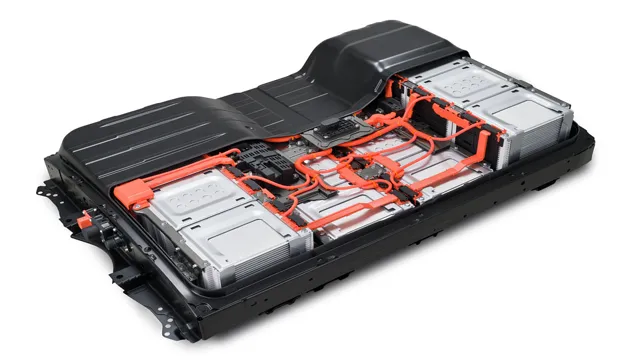
Battery Chemistry and Performance
Electric car batteries are the backbone of all electric vehicles. These batteries are incredibly complex and offer high performance for the job they’re made to do. Most electric car batteries use lithium-ion technology, which is a preferred choice due to its high energy density and low weight.
One of the key advantages of lithium-ion batteries is that they can store much more energy per unit weight than other battery types. Additionally, the operating voltage of a lithium-ion battery is higher than other rechargeable batteries. This means they can deliver higher power output in a much smaller package, making them ideal for electric vehicles.
Despite their impressive performance, electric car batteries still need to improve in terms of capacity and charging time. As the world moves towards more electric transportation, the future looks bright with technological advancements set to revolutionize battery performance.
Advancements in Electric Car Batteries
Electric car batteries have come a long way in the past few decades, and latest technological advancements have brought about exciting prospects for the future of electric cars. The most crucial factor that directly affects the success of any electric car is its battery technology. With recent progress in this field, electric car batteries have become more efficient and can hold larger amounts of energy.
The development of solid-state batteries, which are capable of enhancing energy density and reducing charging time, represent a significant breakthrough. They also have the potential to replace lithium-ion batteries, which currently dominate the market for electric cars. Other innovative technologies including silicon anodes, lithium-sulfur batteries and metal-air batteries offer similar benefits and could soon revolutionize the electric car battery industry.
As electric cars become more popular, advancements in battery technology will play a significant role in shaping the future of transportation around the world.
Solid-State Batteries
Solid-State Batteries Electric cars have been around for a few years now, and they are becoming more popular by the day. One of the main concerns with these vehicles is their range and the time it takes to charge them. That’s where solid-state batteries come in.
These types of batteries have been in the works for a while, but they are making advancements that could change the game for electric car batteries. Solid-state batteries are lighter, smaller, and more efficient than traditional lithium-ion batteries. They are also safer since they don’t use flammable liquid electrolytes, which is one of the biggest concerns with electric car batteries.
With solid-state batteries, electric cars could have ranges comparable to traditional gasoline vehicles, and they could be charged much quicker. This advancement in technology could be just what the electric car industry needs to make them more accessible and appealing to the general public.
Lithium-Ion Batteries with Higher Energy Density
As the demand for electric cars increases, so does the need for advanced battery technology. Lithium-ion batteries have been the standard choice for electric cars, but there have been recent advancements in increasing their energy density, allowing them to store more energy in a smaller space. This is great news as it means electric cars could have longer driving ranges without needing to recharge as often.
One of these advancements includes using pure lithium metal as an anode instead of graphite. This increases the battery’s energy density and also allows for faster charging times. Another advancement is using solid-state electrolytes instead of liquid ones, which could increase the safety of the battery while also improving energy density.
These advancements are crucial for the future of electric cars, making them a more practical and sustainable choice for the environment.
Development of Graphene-Based Batteries
Electric car batteries have come a long way over the years, and one of the most recent advancements is the development of graphene-based batteries. Graphene, a form of carbon, is known for its exceptional strength, conductivity, and durability. Researchers are using graphene-based materials to create batteries that are more lightweight, have a higher energy density, and a longer lifespan than traditional lithium-ion batteries.
With the growing demand for electric cars, the use of graphene-based batteries could revolutionize the industry by providing a more sustainable and efficient energy source. As more research is conducted and production costs decrease, these batteries could become the standard for electric cars, ushering in a new era of clean energy transportation. The potential impact on the environment and our daily lives is immense, making the growth of this technology worth keeping a close eye on.
Future of Electric Car Batteries
Electric car batteries are evolving at a rapid pace, and the future looks bright. With advancements in technology, manufacturers are developing batteries that are more efficient and have a longer lifespan. One new battery technology that is gaining momentum is solid-state batteries.
These batteries are made of solid material, which eliminates the need for liquid electrolytes. This leads to faster charging times and increased energy density. Additionally, researchers are exploring alternative materials for battery construction, such as sodium-ion and lithium-sulfur batteries.
These materials are abundant and less expensive than traditional lithium-ion batteries, making them an attractive option for future electric cars. As technology continues to improve, we can expect to see electric car batteries become more affordable, efficient, and sustainable, paving the way for a cleaner and greener future.
Increased Range and Faster Charging Times
The future of electric car batteries is filled with promise, as researchers and developers work to create stronger, more efficient power sources for our vehicles. One major area of improvement is in range and charging times. With advancements in technology, it’s predicted that electric vehicles will be able to travel further distances on a single charge, making them more practical for long trips.
Additionally, charging times are expected to decrease significantly, making it less of a hassle for drivers to juice up their vehicles when needed. This means that electric cars will soon be able to offer the same level of convenience as traditional gas-powered vehicles, without the environmental impact. With these improvements on the horizon, it’s an exciting time for electric cars and their potential to revolutionize the way we travel.
Wireless Charging and Battery Swapping Solutions
The future of electric car batteries is looking bright, with wireless charging and battery swapping solutions leading the way. These technologies not only make charging more convenient for drivers but also help to address range anxiety, a major concern for many potential electric car buyers. Wireless charging allows drivers to simply park their cars over a charging pad, eliminating the need for cords and cables.
Battery swapping, on the other hand, provides a faster and more efficient way to recharge a vehicle compared to waiting for a traditional charge. While these solutions are still being developed and implemented, they have the potential to revolutionize the electric car industry and make it a more practical option for everyday drivers.
Conclusion and Growth Potential
In conclusion, electric car battery technology is the spark that has ignited a revolution in transportation. With advances in lithium-ion batteries and other innovative energy storage solutions, electric cars have proven they are not just a passing trend, but a viable and sustainable option for the future. As we continue to push the boundaries of science and engineering, we can look forward to even more efficient and powerful batteries that will enable us to take longer trips, charge faster, and reduce our carbon footprint.
So plug in, buckle up, and let’s take the road less traveled – the electric one.”
FAQs
What is electric car battery technology?
Electric car battery technology refers to the lithium-ion batteries that power electric vehicles, allowing them to run on electricity instead of gasoline.
How do electric car batteries work?
Electric car batteries work by storing electrical energy chemically in a rechargeable battery pack, which is then used to power the electric motor that drives the vehicle.
How long does it take to charge an electric car battery?
The time it takes to charge an electric car battery can vary depending on the size of the battery, the charging method used, and the current charge level of the battery. On average, it can take anywhere from 30 minutes to several hours to fully charge an electric car battery.
What is the lifespan of an electric car battery?
The lifespan of an electric car battery can vary depending on factors such as the type of battery, how it is used and maintained, and the overall design of the electric vehicle. In general, most electric car batteries are designed to last for around 100,000 to 200,000 miles before they need to be replaced.
